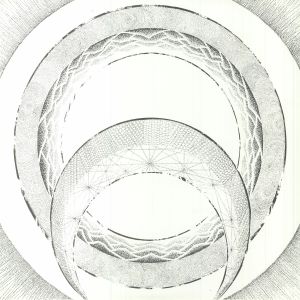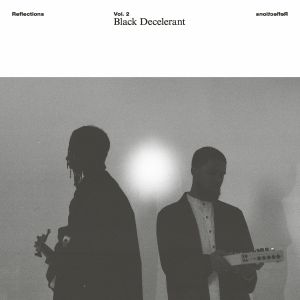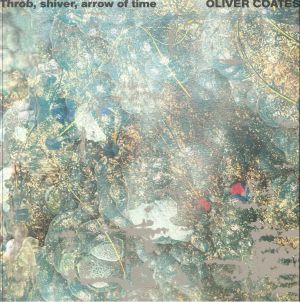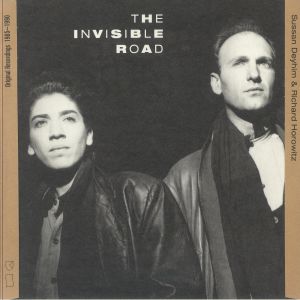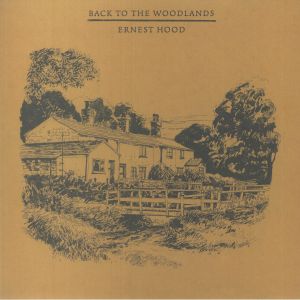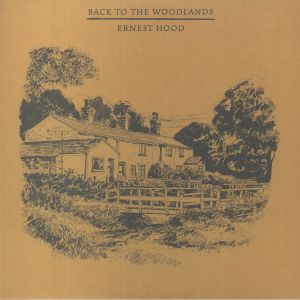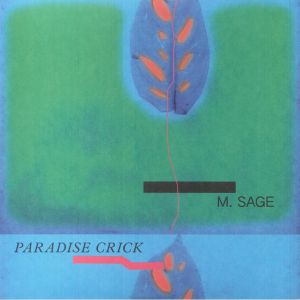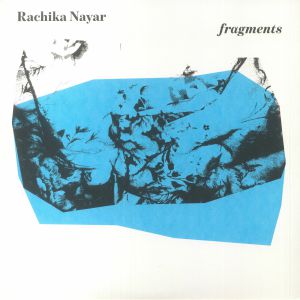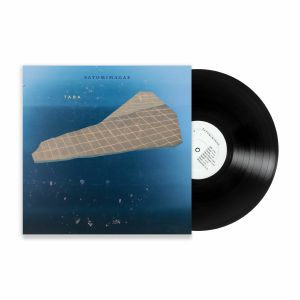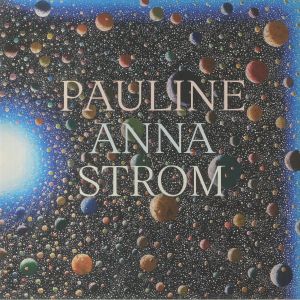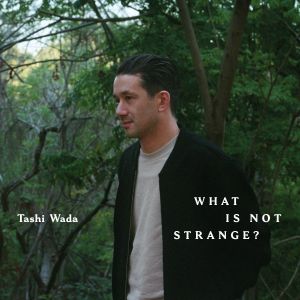Receive new release alerts for Rvng Int'l US
Filter
Genre
Type
Music
Format
Featured
Release Title
Price
Tags
Rvng Int'l US Vinyl & CDs
Browse the latest Vinyl & CD releases on Rvng Int'l USSimilar labels:
Items 1 to 13 of 13 on page 1 of 1
Review: Tin Iso and the Dawn has been a four part journey from the New York based composer and puppeteer Tristan Allen. It has brought to life a whole world of fantastical characters who share "universal longings" with us mere mortals. The opening part of the fine series showcases some meticulous sound design and alluring leitmotifs that all try to make sense of loss and what comes after. The album is loosely based on Wagner's three act opera Tristan und Isolde and was written over the course of seven years from 2105 with plenty of field recordings and a mix of acoustic instruments that were processed and arranged electronically. It's a transfixing listen, for sure.
… Read more in stock $26.42
Review: Black Decelerant, a collaboration between Khari Lucas (Contour) and Omari Jazz, explores spiritual jazz through modern tones, weaving sonic reflections on Black existence, life and grief, expansion and constraint, and the personal versus the collective. Their eponymous debut album fosters a serene refuge amidst societal turbulence and aims to transcend fleeting moments. Conceived from an intuitive process, the album emerged from remote sessions spanning six months in 2020, bridging South Carolina and Oregon. Improvised instrumentals and sampled productions became conduits for their inner dialogues and offered solace during existential crises amid lockdowns and social unrest in the US.
… Read morePlayed by: Juno Recommends Broken Beat Nu Jazz
in stock $28.37
Cat: RVNGNL 116LP. Rel: 17 Oct 24
Modern Classical
Review: Oliver Coates' Throb, Shiver, Arrow of Time is an exploration of memory and emotion, blending the tactile with the ephemeral. This third album from the British cellist, producer, and composer, released through RVNG Intl., encapsulates six years of introspection and creative evolution. Following the atmospheric textures of his previous work, skins n slime, Coates delves deeper into the interplay of digital and analogue sound. The album's centerpiece, 'Shopping centre curfew,' reflects a surreal fusion of events from South London during the pandemic, manifesting a unique blend of temporal dissonance and vivid soundscapes. Tracks like 'Please be normal' and '90' showcase Coates' ability to weave misty tones and shifting frequencies into a cohesive auditory experience. Collaborations with Malibu and chrysanthemum bear, along with Faten Kanaan's synth textures, enhance the album's depth. Inspired by artist Sarah Sze's installations, Coates applies a sculptural approach to sound, creating a dynamic interplay between digital manipulation and live performance. The result is a rich experience that resists closure, with the final track 'Make it happen' embodying a defiant push against silence.
… Read more in stock $26.14
The Invisible Road: Original Recordings 1985-1990 (LP + booklet)
Cat: RERVNG 15LP. Rel: 07 Nov 24
Experimental/Electronic
Review: Meeting in the wonderfully intimidating and disorienting - not to mention disorganised - chaos of downtown Manhattan in the 1980s, Sussan Deyhim and Richard Horowitz struck up a lifelong partnership emotionally and creatively, sharing in a radical vision of what pop could be if it was allowed to break free from the shackles of major labels obsessed with commercial ambition. Together, people often cite them as both singular - certainly in Deyhim's approach to vocalisation - and yet resolutely abstract and varied, always moving into new territories and exploring the idea of musical languages being written rather than read back and repeated. This collection, pieced together with input from the two masterminds themselves, is wonderfully bizarre and beguiling introduction to their world.
… Read morePlayed by: Alexis Le-Tan
in stock $26.14
Review: Andrew PM Hunt returns once again as Dialect with Atlas Of Green, determinedly expanding the artist's idea-oeuvre with a brand new concept album. The album imagines a young musician named Green, working in a "dawning future era where lost signals and enduring impulses are unearthed from the sediments of technology and time." Its description sounds at once illusive yet still rings out as meaningful, recalling the collective post-apocalyptic utopia outlined in Ursula Le Guin's Always Coming Home; both works deal in themes of recovery, of unearthing old technologies from sedimented layers of workable soil. Green's dozen tracks weave through malfunctioning but still usable scrap metals or "vaporware" of sampled sound, its chirrupy latent folkishness, its sound effects-laden lollops, making up the confluent, but still contingent, cochlear canards of lost - but non-linear and thus still salvageable - time.
… Read morePlayed by: Juno Recommends Ambient/Drone
in stock $29.21
Back To The Woodlands (remastered) (LP + insert + MP3 download code)
Cat: FTS 022LP. Rel: 16 Nov 22
Experimental/Electronic
Review: A beautiful exploration in Americana, string music and all the emotion that can possibly be wrung from their intersection, Ernest Hood's Back To The Woodlands was recorded in a 10-year period in Western Oregon, beginning with Reagan and ending with Carter; 1972-1982. Hood has gone down in folk music history as a mastermind of the chordophone, a unique experimenter in such hammer-struck string instruments such as the zither, the psaltery and the good ole' guitar (and really, if you look into the history of string instruments, one could argue they're all just zithers). Never before released, this is an extraordinarily emotional album melding the artist's use of field recordings, synths, zither flourishes and guitar harmonies, producing a mini-revolution in sound that expresses the many new possibilities opened up not only by being differently abled, but also awe-inspired by the world around you.
… Read morePlayed by: Alexis Le-Tan
in stock $30.32
Back To The Woodlands & Where The Woods Begin (limited noonday yellow marbled vinyl LP + insert + MP3 download code)
Cat: FTS 022LPC1. Rel: 17 Nov 22
Experimental/Electronic
Review: Written and recorded between 1972 and 1982 in Western Oregon, Back to the Woodlands is a previously unreleased, and nearly lost, album made by Ernest Hood during the same era as his near mythical album Neighborhoods. A visionary combination of field recordings, zithers, and synthesizers, Back to the Woodlands offers an unprecedented depth of access to this singular artistic mind.
… Read morePlayed by: Sam Don
in stock $30.88
Review: Isik Kural's Moon in Gemini is a captivating album that blends slow, evocative narratives with symbolic storytelling. While also combining environmental music with folk influences, Isik's vocals float over pastoral sounds, chamber instrumentation and archival recordings which trace a line back through his own diverse musical journey. The album's 14 tracks immerse you in a dreamy, liminal space - 'Moon in Gemini' for example reflects a multi-faceted and nostalgic exploration of Isik's past work by including recordings from Turkey, Miami, Helsinki, and Glasgow. Inspired by artists like Nina Simone and Aldous Harding, Isik experiments with new techniques of theirs to make this album a poetic, naturalistic experience with a portion of proceeds sent to benefit Mor cat? Women's Shelter Foundation.
… Read morePlayed by: Juno Recommends Ambient/Drone
in stock $26.14
Review: There's clearly something in the water in Colorado: a hotbed for alternative electronic tones. The obvious answer would be all the weed the place is now famous for, but we prefer to think it's the stunning and seemingly-never ending natural landscape that hits you the moment you look up. No stranger to music making, local one M. Sage presents his latest interpretation of those surrounds, with Paradise Crick a deep dive into sounds at once manmade and natural. A gentile trip through floating noises and hypnotic fragments of time, it's blissful, instantly captivating stuff, quickly locating the part of the brain that makes you feel immersed and making itself at home. Meandering through the lot feels like time well spent, outside, listening to babbling brooks and gazing out on lakes reflecting beams of sunlight back into the world.
… Read more in stock $24.47
Review: Rachika Nayar's album 'Fragments' is a collection of sonic miniatures constructed from guitar loops and in the familiar comforts of her own bedroom. First released as a limited edition cassette by RVNG Intl's Commend THERE imprint, it now comes to the main label in full vinyl LP glory, thanks to its sublime working of cyclical, processed, meditative guitar loops into a distinct oeuvre. Nayar is no less than a sonic alchemist, transmuting tactile guitar loops into repeating textures, in a style that seems to continue in the tradition of The Field or Fennesz.
… Read morePlayed by: Juno Recommends Ambient/Drone
in stock $24.20
Review: On her sixth full-length album, Tokyo's Satomimagae continues to refine her idiosyncratic fusion of folk, ambient and sound collage into something singular and quietly expansive. Hailing from Japan's acid-folk scene, Satomi's music often blurs the edges between the intimate and the cosmic, the rooted and the abstract. Taba floats beautifully in that liminal space. Rather than traditional song structures, she presents Taba as a series of open-ended vignettes, each radiating with a soft-focus clarity. The arrangements are centered around fingerpicked guitar, hushed vocals and ambient textures that are deceptively gentle. Closer listening reveals a rich interplay of glitchy electronics, subtle field recordings and haunted atmospheres. Tracks like 'Many' drift on echoing voices and vaporous folk melodies, while 'Tonbo' finds a summery sweetness in its fusion of pop and pastoral folk, complete with the sound of nature rustling at its back. 'Omajinai', perhaps the emotional core of the album, embraces traditional pop structure only to dissolve it into a haze of nostalgia and spectral warmth. Taba is not background music, it asks for deep listening, but rewards you with quiet truths and melancholic beauty.
… Read more in stock $26.14
Review: Pauline Anna Strom was a revelation to followers of Rvng Intl, when the label gathered together some of the Bay Area enigma's finest moments from an obscure thread of tape releases for Trans-Millenia Music. They also helped facilitate an album of new music, Angel Tears In Sunlight, which was released in 2021 mere weeks after Strom passed away. Her legacy as a profoundly visionary ambient artist continues with this expansive box set, which gathers together her first three albums from the early 80s, remastered from the original tapes, plus a fourth previously unreleased album discovered after her passing. Glorious synthesis and a mysterious approach to composition make Strom's music so much more than her new age contemporaries and Rvng have done a fine job paying tribute to her half-hidden talent.
… Read more in stock $86.49
Review: Los Angeles-based composer Tashi Wada steps out with his long awaited debut album, What Is Not Strange?, and a fine first solo outing it is too. It is by far his most ambitious and widescreen work to date and it comes laden with plenty of emotion as a result of the fact that it was written and recorded over a period that encompassed the death of his father and the rather opposite feelings of experiencing the birth of his daughter. As such Wada reflects inward to explore various themes including being alive, mortality and finding one's place in the world. His unique song based expressionism goes from ecstatic to denser forms and starker contrasts. It is a wonderful experiment and immersive listen.
… Read more in stock $40.89
Items 1 to 13 of 13 on page 1 of 1

 USD
USD





